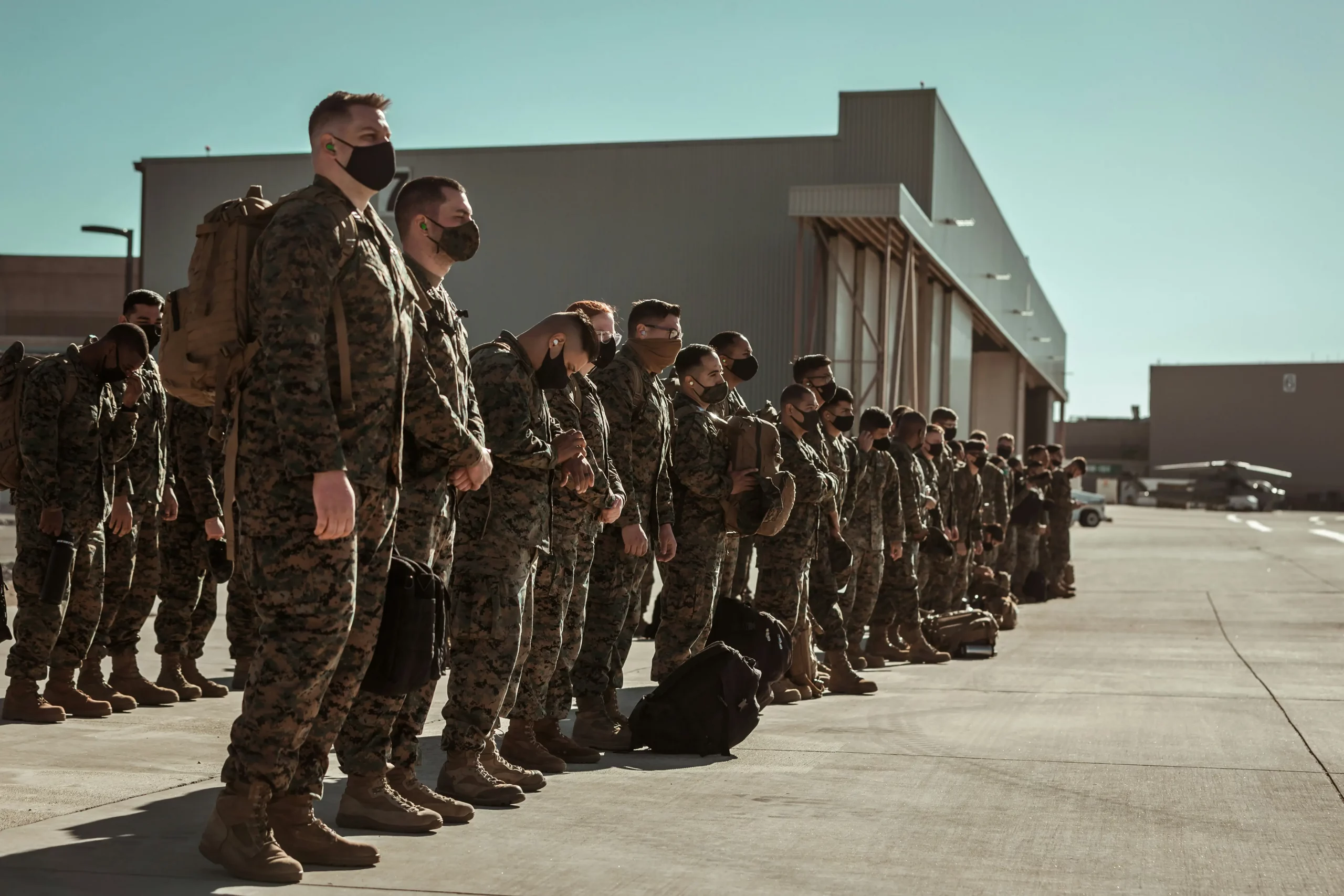When Military Service Leads to Legal Trouble
You’re a dedicated service member who has devoted years of your life to serving your country. One day, you find yourself accused of violating the Uniform Code of Military Justice (UCMJ). Whether it’s a minor infraction or a serious offense, the consequences can be life-altering—impacting your career, reputation, and even your freedom.
This is where a UCMJ lawyer comes in—a legal expert who specializes in navigating the unique and often complex world of military law. Whether you’re facing a court-martial, non-judicial punishment, or administrative separation, a UCMJ lawyer is your trusted advocate, ensuring your rights are protected and your voice is heard.
What Is the Uniform Code of Military Justice (UCMJ)?
Breaking Down the Basics
The Uniform Code of Military Justice (UCMJ) is the foundation of military law in the United States. It governs the conduct of all service members—whether active duty, reserve, or National Guard—and outlines the rules, procedures, and penalties for violations. Enacted in 1950, the UCMJ ensures discipline, accountability, and fairness within the armed forces.
Key Objectives of the UCMJ
- Maintain Discipline: The UCMJ establishes standards of behavior expected of service members.
- Protect Rights: It ensures service members receive due process and fair treatment under the law.
- Enforce Accountability: The UCMJ holds individuals accountable for misconduct, ranging from minor infractions to serious crimes.
- Promote Justice: It provides a structured legal framework for addressing violations and resolving disputes.
Real-Life Example: Sarah’s Story
Sarah, a young Marine, was accused of insubordination after refusing an order she believed was unethical. Facing potential discharge, she hired a UCMJ lawyer , who argued her case before a commanding officer. The lawyer successfully demonstrated that Sarah acted in good faith, resulting in reduced penalties and preserving her career.
Stories like Sarah’s highlight why the UCMJ isn’t just a set of rules—it’s a system designed to balance discipline with justice.
Key Components of the UCMJ
The UCMJ covers a wide range of offenses and procedures. Here’s an overview of its most important components:
1. Offenses Under the UCMJ
- What It Is: Crimes and violations specific to military service.
- Examples: Absence without leave (AWOL), desertion, insubordination, theft, assault, and sexual misconduct.
2. Court-Martial Proceedings
- What It Is: Formal trials for serious offenses, similar to civilian criminal courts.
- Types: Summary court-martial (minor offenses), special court-martial (moderate offenses), and general court-martial (serious offenses).
Court of Appeals for the Armed Forces (CAAF): CAAF Homepage .
U.S. Navy-Marine Corps Appellate Review Activity: Appellate Process .
3. Non-Judicial Punishment (Article 15)
- What It Is: A disciplinary process for minor offenses handled by a commanding officer.
- Examples: Extra duties, reduction in rank, forfeiture of pay, or confinement.
4. Administrative Actions
- What It Is: Non-criminal measures such as reprimands, demotions, or discharges.
- Examples: Separation boards, letters of reprimand, or performance evaluations.
5. Appeals Process
- What It Is: Procedures for challenging convictions or sentences in military courts.
- Examples: Appeals to higher courts, including the Court of Appeals for the Armed Forces.
6. Rights of the Accused
- What It Is: Protections for service members facing charges under the UCMJ.
- Examples: Right to remain silent, right to legal counsel, and right to a fair trial.
Military Justice Project: Defending Service Members’ Rights .
How a UCMJ Lawyer Helps You
Navigating the UCMJ can be overwhelming, especially for service members unfamiliar with its intricacies. A UCMJ lawyer plays a vital role in ensuring fairness and protecting your rights. Here’s how they add value:
1. Evaluating Your Case
They assess the facts of your situation to determine the best course of action, whether it’s negotiating a plea deal or preparing for trial.
2. Representing You in Court-Martial
From gathering evidence to cross-examining witnesses, a UCMJ lawyer ensures your defense is thorough and compelling.
3. Handling Non-Judicial Punishment
If you’re facing Article 15 proceedings, a lawyer advises you on accepting or rejecting punishment and represents you during hearings.
U.S. Army Regulation on Non-Judicial Punishment: AR 27-10 .
FindLaw: Understanding Article 15 .
4. Advising on Administrative Actions
They help you respond to reprimands, discharge proceedings, or other administrative measures that could impact your career.
Military Discharge Upgrades: Board for Correction of Military Records .
Veterans Affairs (VA): Discharge Review Process .
5. Filing Appeals
If you’ve been convicted or unfairly treated, a lawyer guides you through the appeals process to seek justice.
Steps to Take If You Face UCMJ Charges
If you’re accused of violating the UCMJ, here’s what you should do next:
1. Stay Calm and Cooperate
Avoid making statements or taking actions that could worsen your situation.
2. Request Legal Counsel
Under the UCMJ, you have the right to free legal representation from a military defense attorney—or you can hire a civilian UCMJ lawyer.
3. Gather Evidence
Collect any documents, witness statements, or other materials that support your case.
4. Understand the Charges
Work with your lawyer to fully comprehend the allegations and potential consequences.
5. Prepare for Proceedings
Whether it’s a court-martial, Article 15 hearing, or administrative board, a UCMJ lawyer ensures you’re ready to present your side effectively.
Common Mistakes to Avoid
Even well-meaning service members can make costly mistakes when dealing with UCMJ charges. Here are some pitfalls to avoid—and how a UCMJ lawyer can help:
1. Speaking Without Representation
Admitting guilt or making self-incriminating statements can harm your case. A lawyer advises you on what to say and when.
2. Ignoring Deadlines
Failing to meet deadlines for appeals or responses can result in missed opportunities. A lawyer ensures timely filings.
3. Accepting Punishment Without Review
Don’t agree to Article 15 punishment without consulting a lawyer, as it may have long-term consequences.
4. Underestimating the System
The UCMJ is complex and unforgiving. A lawyer helps you navigate its nuances and avoid traps.
5. Going It Alone
Representing yourself can lead to procedural errors and unfavorable outcomes. A lawyer levels the playing field.
Real-Life Success Stories: Clients Who Prevailed
Let’s look at two inspiring examples of how a UCMJ lawyer made a difference:
Case Study #1: Mark’s Victory
Mark, an Army sergeant, was accused of stealing government property. His lawyer uncovered evidence proving the items were mistakenly labeled as stolen, leading to dismissal of the charges and restoration of his reputation.
Case Study #2: Emily’s Justice
Emily, a Navy officer, faced a court-martial for alleged misconduct during a deployment. Her lawyer presented mitigating evidence and negotiated a plea deal, allowing her to retain her rank and continue her career.
These stories demonstrate the transformative impact of having a skilled advocate by your side.
FAQs About UCMJ Lawyers
- What does a UCMJ lawyer do?
They evaluate cases, gather evidence, represent clients in court-martial or Article 15 hearings, and file appeals. - How much does a UCMJ lawyer cost?
Many offer free consultations, and costs vary based on case complexity. Some work on contingency fees for certain cases. - Can I use a civilian UCMJ lawyer?
Yes, you can hire a civilian UCMJ lawyer in addition to or instead of a military-appointed attorney. - What happens if I violate the UCMJ?
Penalties range from reprimands and fines to imprisonment or dishonorable discharge, depending on the offense. - What should I bring to my first meeting with a lawyer?
Bring relevant documents, correspondence, and details about the charges against you. - Will a UCMJ lawyer help me avoid a court-martial?
Yes, they negotiate alternatives like Article 15 or administrative resolutions when possible. - Can a lawyer help me appeal a conviction?
Absolutely! They guide you through the appeals process and argue for reduced sentences or overturned convictions. - What rights do I have under the UCMJ?
You have the right to remain silent, legal counsel, a fair trial, and protection from self-incrimination. - Is there a deadline for appealing UCMJ decisions?
Yes, deadlines vary by type of appeal, so act quickly to preserve your rights. - Can a UCMJ lawyer help with administrative separations?
Yes, they assist with discharge boards and other administrative actions that affect your career.
Conclusion – Don’t Face Military Justice Alone
Facing charges under the Uniform Code of Military Justice is more than just a legal issue—it’s a challenge to your honor, career, and future. But you don’t have to face it alone. A UCMJ lawyer is your trusted ally, guiding you through the process and fighting for the best possible outcome.
With their expertise, you can navigate the complexities of military law, avoid costly mistakes, and focus on what matters most—your service and your future. Don’t let fear or uncertainty keep you from taking action—your rights and reputation are worth defending.
Facing military charges? Contact a UCMJ lawyer immediately.
Learn more about Military Lawyers (JAG Lawyer) and their specializations : Military Lawyer (JAG Lawyer): Your Complete Guide to Military Justice

